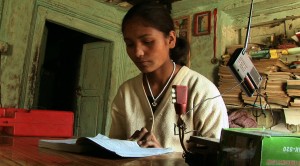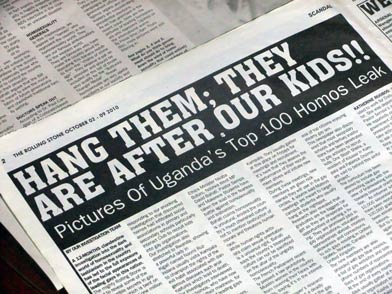Framed by the United Nations global initiative to provide equal access to education for girls by 2015, the documentary film, To Educate a Girl, takes a ground-up and visually stunning view of that effort through the eyes of girls in Nepal and Uganda, two countries emerging from conflict and struggling…
-
-
One Year After the Murder of David Kato, Uganda’s Parliament Resurrects “Kill the Gays” Bill
But now, the draconian bill which began the chain reaction that led to David Kato's death is back. A copy of Uganda's Parliament Order Paper, dated February 7, 2012, has been making its way around the internet. The return of the "Kill the Gays" bill is a major concern for…

